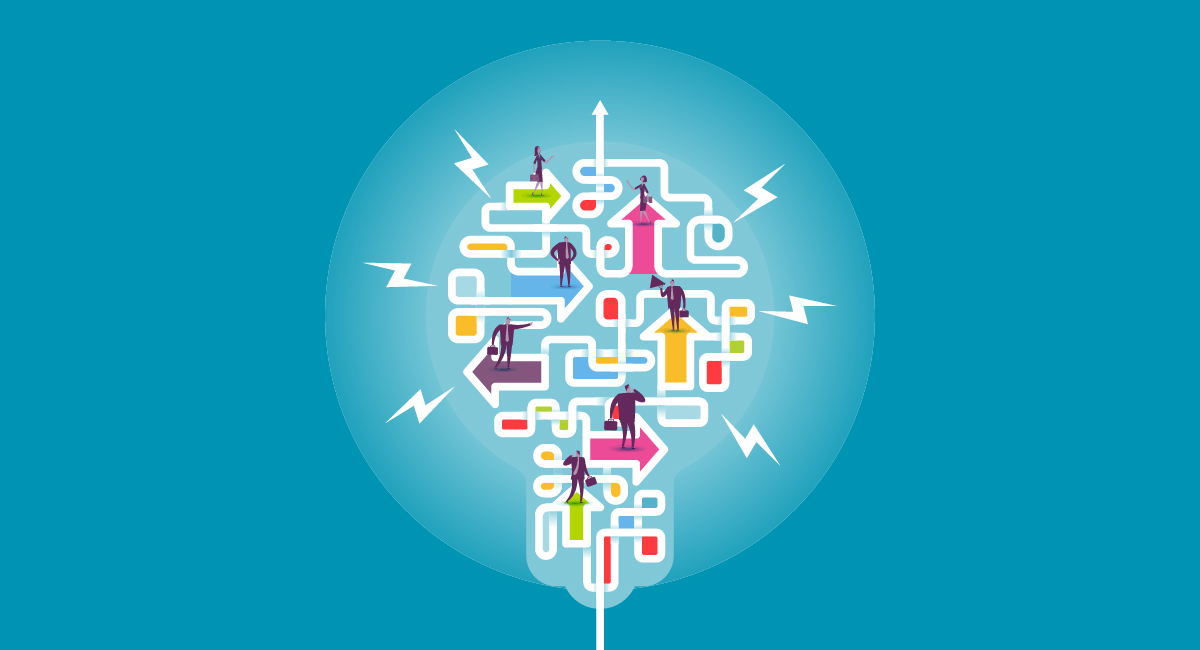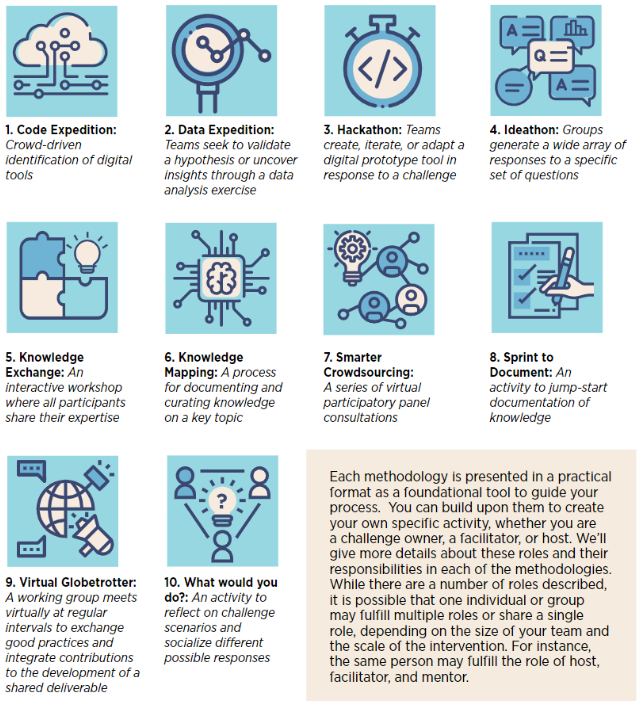Now more than ever, we need to take advantage of collaborative methodologies when creating solutions for social and economic development. The Know How Now guide provides practical examples for shaping collaborative activities that can inform and take part in development projects.
Today, most of the challenges we face are not for a person, or an entity, to create the solution in isolation. Many of the problems require a level of discussion, unraveling, approaching, and focusing from various different angles and perspectives. In this environment, we need methods that focus on people, that open up the opportunity to hear, exchange and refine ideas in a constructive process. We need everyone, but above all, we need to listen and add in the processes the people who are experiencing the problems in their day to day, in order to create more inclusive and sustainable solutions. It sounds obvious, but then why isn’t it usually done?
Many times when a solution to a complex challenge is demanded, we focus on urgency, rather than any other aspect. Efficiency, conflict minimization, consensus, and proven and established routes are prioritized to define and execute as quickly as possible and not confuse the process. However, such a process does not take enough into account a multifaceted, multi-perspective reality. By not incorporating the input, knowledge and experience of others, the long-term effectiveness of the solutions created is jeopardized. Working like this, who will appropriate after solutions?
The great thing about participating in the creation of solutions is that it helps foster the sustainability of those solutions by creating a wider sense of inclusion and relevance. When one’s perspective has been consulted and incorporated, the quality of the end results are increased by truly resolving the original needs being addressed by the solution in the first place.
That’s why we and many others believe that collaboration is the key to solving complex development problems. But collaboration does not happen on its own; “it requires time, planning and dedicating resources to look for and develop opportunities” as the Principles of Digital Development emphasize. And in practice, it can be difficult, if you don’t know how or where to start. That’s why we’ve made the effort at the IDB to document a set of cases where collaborative methodologies and knowledge-sharing have played a key role in the research, strengthening, and co-creation of development solutions.
How can I apply these methods?
At the IDB, we have used numerous collaborative methodologies to support development projects in Latin America and the Caribbean, as well as to improve our own administrative services. Our experience with these methodologies has allowed us to validate their practicality in a variety of contexts, recognize good practices and refine our criteria of when and how to implement them.
From these experiences, we have compiled a guide to support the selection, planning and facilitation of knowledge sharing methodologies. In this guide, each methodology is presented in a practical format to help navigate and execute the process of its application.
Review the 10 methodologies here or use the included template to document your own methodology.
These methodologies can be used as a basis for creating your own activity, whether you are facing the challenge, a facilitator or a host. It is important to note that we use knowledge-sharing methodologies to respond to a specific challenge.
Below you will find a brief description of the methodologies that are included in our guide. We invite you to explore them and apply them in your work!
- Code Expedition: crowd-driven identification of digital tools
- Data Expedition: teams seek to validate a hypothesis or uncover insights through a data analysis exercise
- Hackathon: teams create, iterate, or adapt a digital prototype tool in response to a challenge
- Ideathon: groups generate a wide array of responses to a specific set of questions
- Knowledge exchange: an interactive workshop where all participants share their experience
- Knowledge mapping: process for documenting and curating knowledge on a key topic
- Smarter Crowdsourcing: a series of virtual participation panel consultations
- Sprint to Document: activity to jump-start the documentation of knowledge
- Virtual Globetrotter: a working group meets virtually at regular intervals to exchange good practices and integrate contributions to the development of a shared deliverable
- What would you do?: activity to reflect on challenge scenarios and socialize different possible responses
Ready to apply these methodologies in your work? Download the full guide here.
Have you used other methodologies you would like to share? At the end of the guide you can find a template to document your experience and share it with us.



Leave a Reply